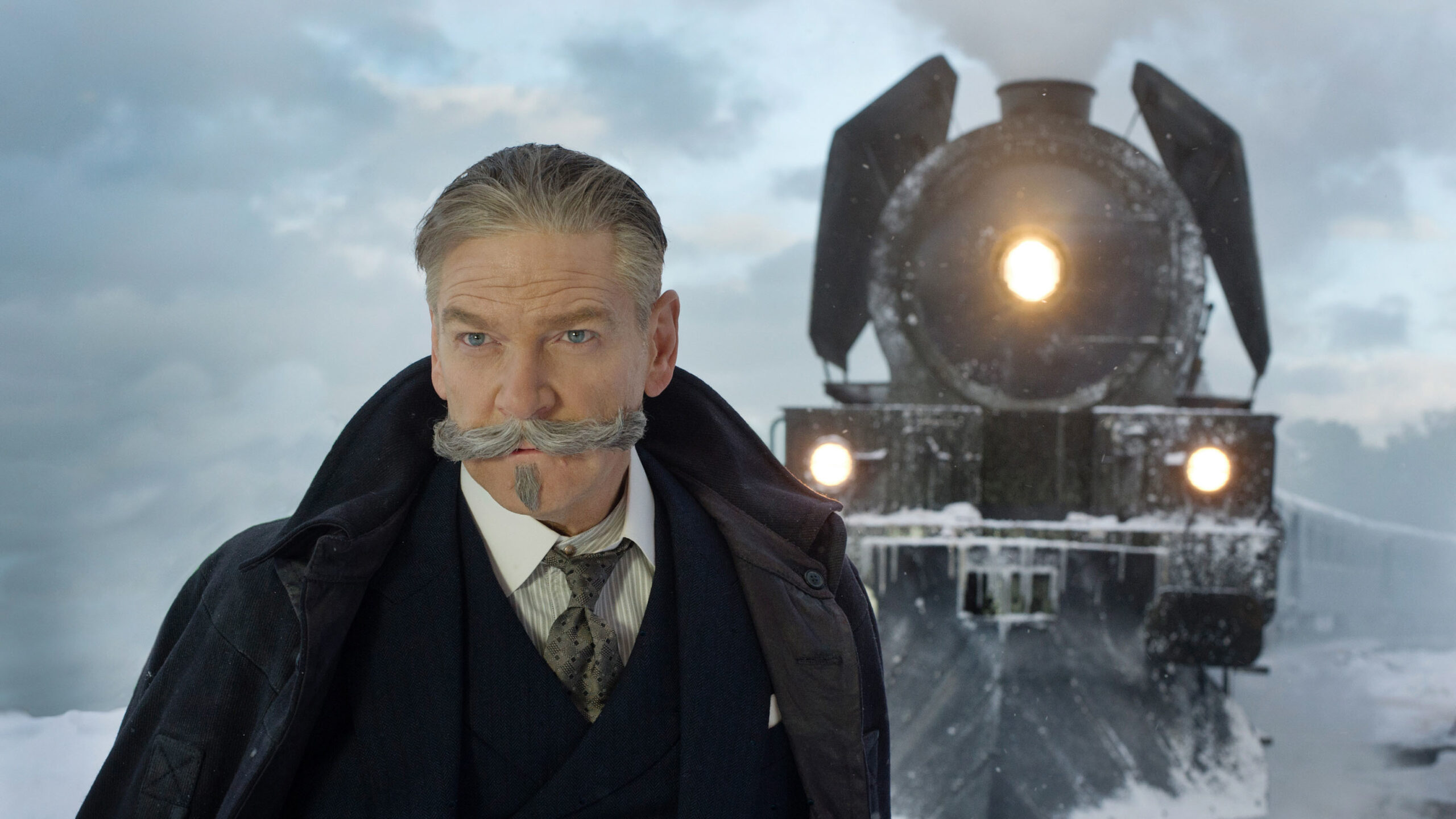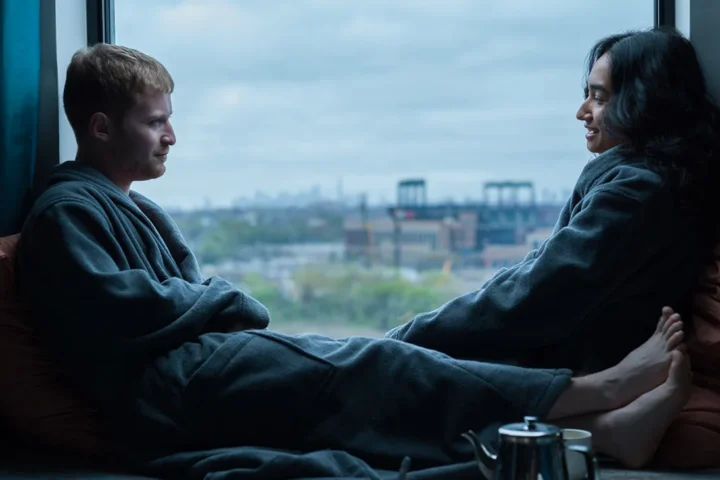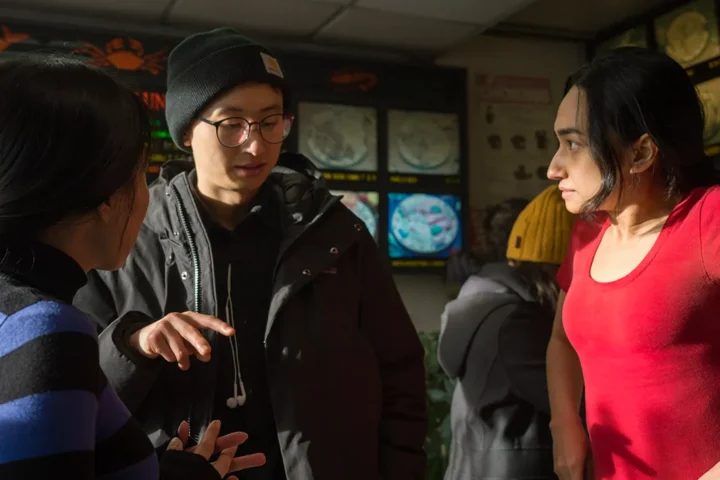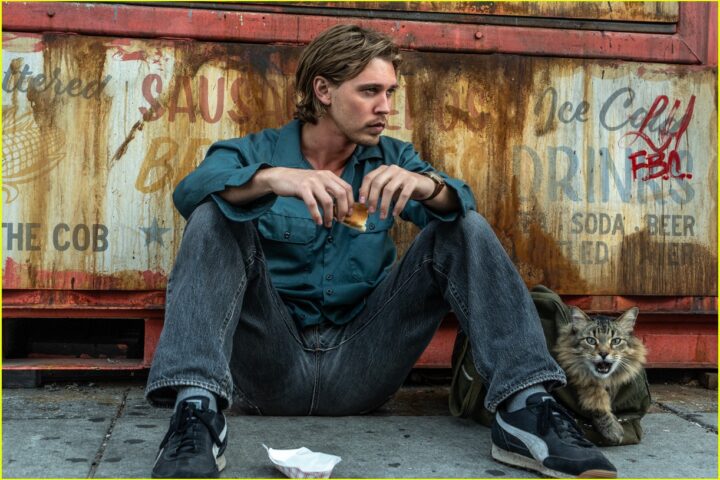If you haven’t seen Sidney Lumet’s 1974 version of Agatha Christie’s Murder on the Orient Express (or read the novel, for that matter), then Kenneth Branagh’s sometimes entertaining new film version may just win you over. It’s a movie with a fine ensemble and enough of a pedigree to satisfy audiences hungry for a departure from Hollywood’s current crop of vapid, high-concept products. Even so, it struggles for a reason to exist—unless you count the potential opportunity to set up famed detective Hercule Poirot as a franchise player in future installments. Yes, it could happen. Stranger things, as they say.
In Murder on the Orient Express, Branagh chiefly succeeds in giving himself a star turn as Poirot, he of the wily moustache, thick French accent and supremely confident repose, a dream role for the star who walks a fine line here between humor and seriousness, very much aware of the need to deliver a movie character larger-than-life who finds meaning in the smallest of details. It’s quite a turn, and one that gives a nearly 100-year-old mystery a fresh, engaging center.
Screenwriter Michael Green introduces a Poirot in 1934 Jerusalem obsessing over the perfect hardboiled egg before getting caught up in a scuffle concerning the theft of a piece of valuable art, a scene that Branagh stages large scale rendered more for cinematic potential than dramatic, typifying the overall style here, which is the real star of this story.
Belgian Poirot quotes Dickens and to a fault simply cannot relax and enjoy a much-needed break. Even stepping in horse dung presents an opportunity for Poirot to indulge in his relentless need for logic—placing both feet into the sludge for equity. But his vacation plans are about to be interrupted.
Summoned back to London for a case, Poirot hops aboard the Orient Express, a luxury train headed over the wintry mountains that quickly becomes the scene of a crime. Enter an avalanche and a dead man, stranding the train and presenting a whodunit including interrogations, suspicions, multiple suspects with motives and a past trauma resurfaced.
But who did it? The eclectic passenger manifesto includes Russian royalty (Judi Dench) and her maid (Olivia Colman); an underhanded American art dealer (Johnny Depp, in fine voice) and his assistant (Josh Gad); a reserved valet (Derek Jacobi); an American widow (Michelle Pfeiffer) looking for a husband; a German professor (Willem Dafoe); a devout Spanish missionary (Penelope Cruz); a pretty young governess (Daisy Ridley) and her surreptitious boyfriend (Leslie Odom Jr., sensational); and a Hungarian count (Sergei Polunin) and his mysterious wife (Lucy Boynton). The big score in this cast of suspects is the sexy, tragic Pfeiffer, having a terrific comeback year with both this picture and mother!
For awhile, Murder on the Orient Express plays well enough with speed, scale and the appealing proposition that Branagh takes little of this seriously, starting with the moustache. Yet once the investigation is afoot the picture slows down considerably, and Green’s screenplay doesn’t give us enough of any character to much care about the proceedings.
In Murder on the Orient Express, the technique is a bit heavy on CGI trickery of gleaming, sweeping mountain vistas and sunsets, which can look so artificial you might think you’re watching The Polar Express. The simplicity of a train passing over the mountains would have, practically, been easy enough to shoot, and the stylized netherworld of this picture is indicative of the “more is less” approach to contemporary studio pictures, where less would have grounded the film rather than smothered it.
Branagh, who found fame in his twenties with his energetic and inventive Shakespeare stage and screen adaptations beginning with 1989’s rousing Henry V, is nothing if not a showman, as he proved in 1991’s ripping noir homage Dead Again. As a filmmaker, he’s applied lavish mountings to 1994’s Mary Shelley’s Frankenstein and has even made the transition, and well, I might add, to the Marvel universe with 2011’s enjoyable, light-touch Thor.
The clear intention here is to revive Christie’s classic Poirot as a James Bond-type sleuth and indeed, the picture sets of the potential for a next installment in a brief mention of Death on the Nile. But with the exception of Poirot and perhaps Pfeiffer’s vividness, the rest are largely indistinguishable; while the slick movie puts them through the paces, it is hard to deny that there is little real substance.
Yet, the movie is one of certain pleasures in that it’s a sort of glossy, grown-ups movie not afraid to be talky and featuring a resolutely old-fashioned collection of resonant performances that nostalgically throw back to the all-star cast pictures of another era.
It’s nearly enough.
2 1/2 stars.



